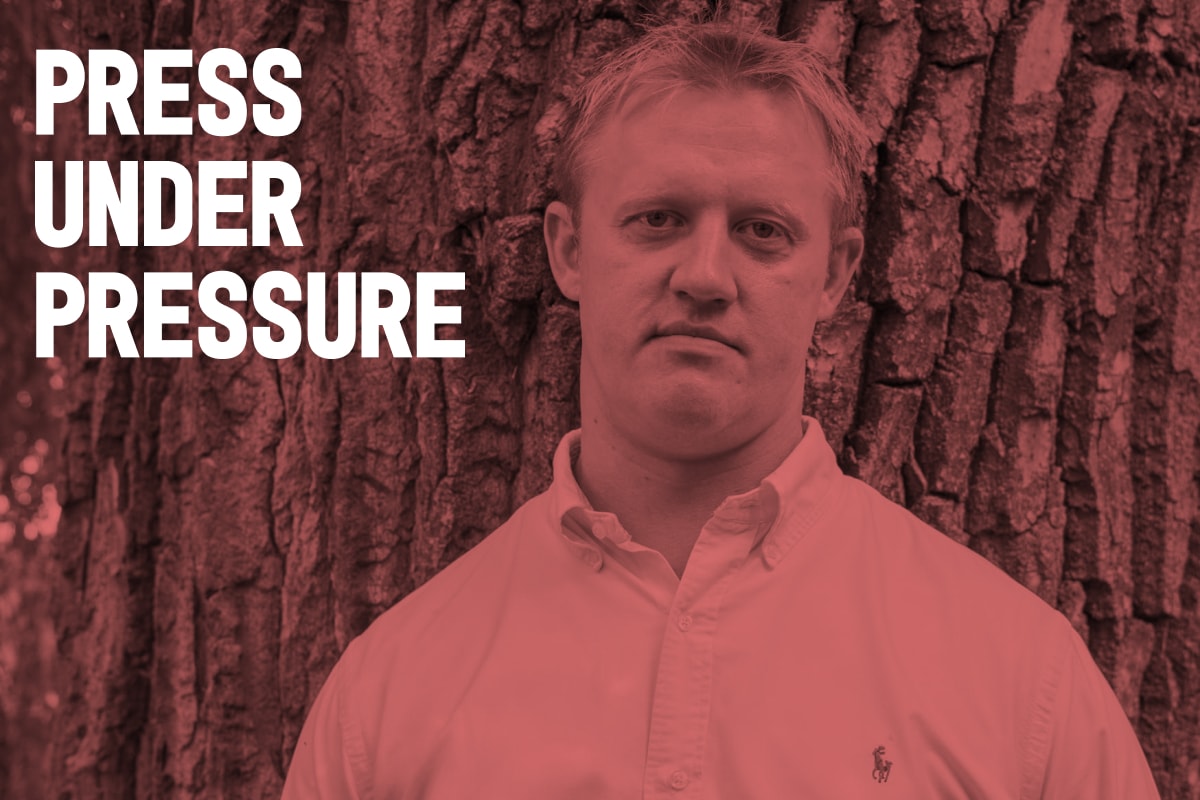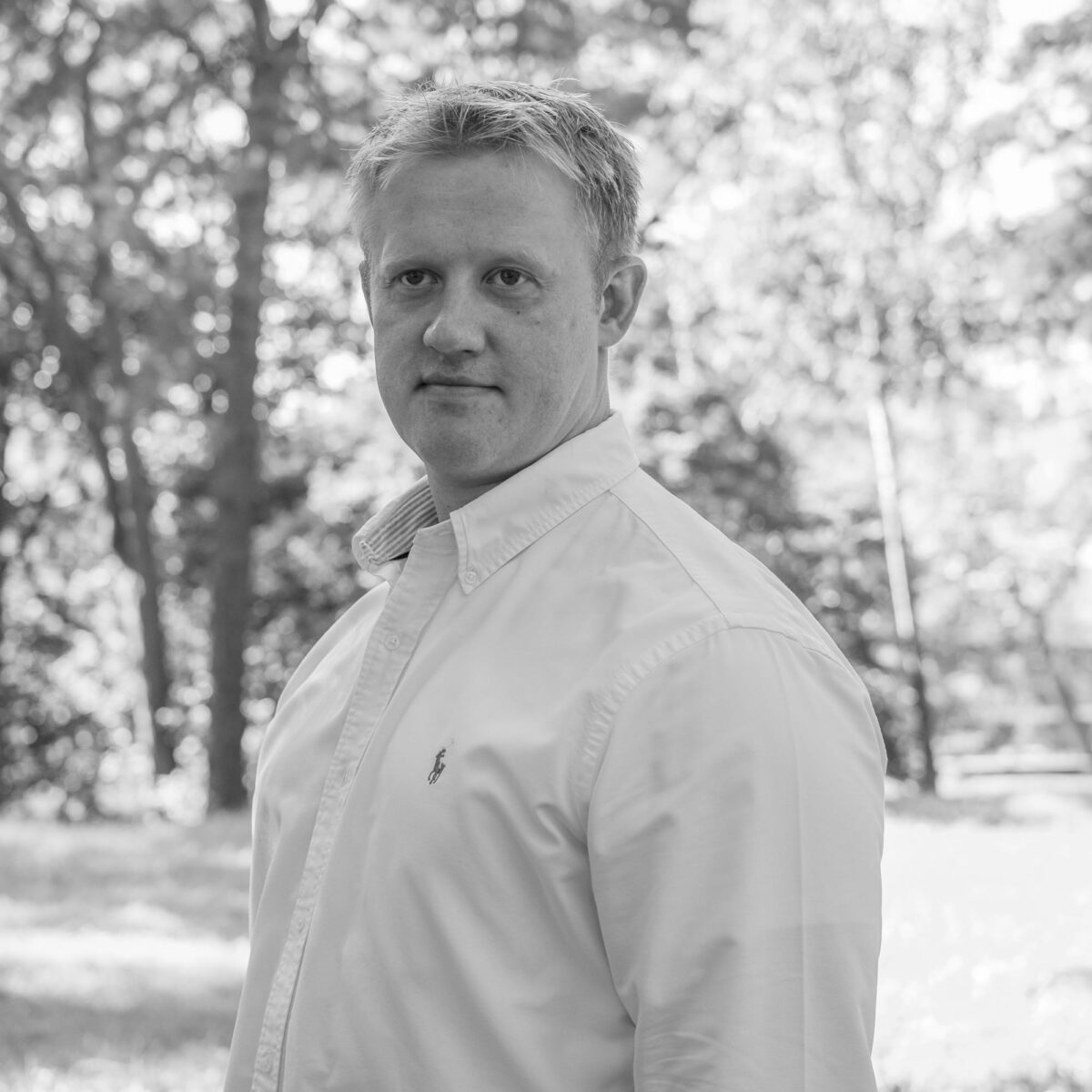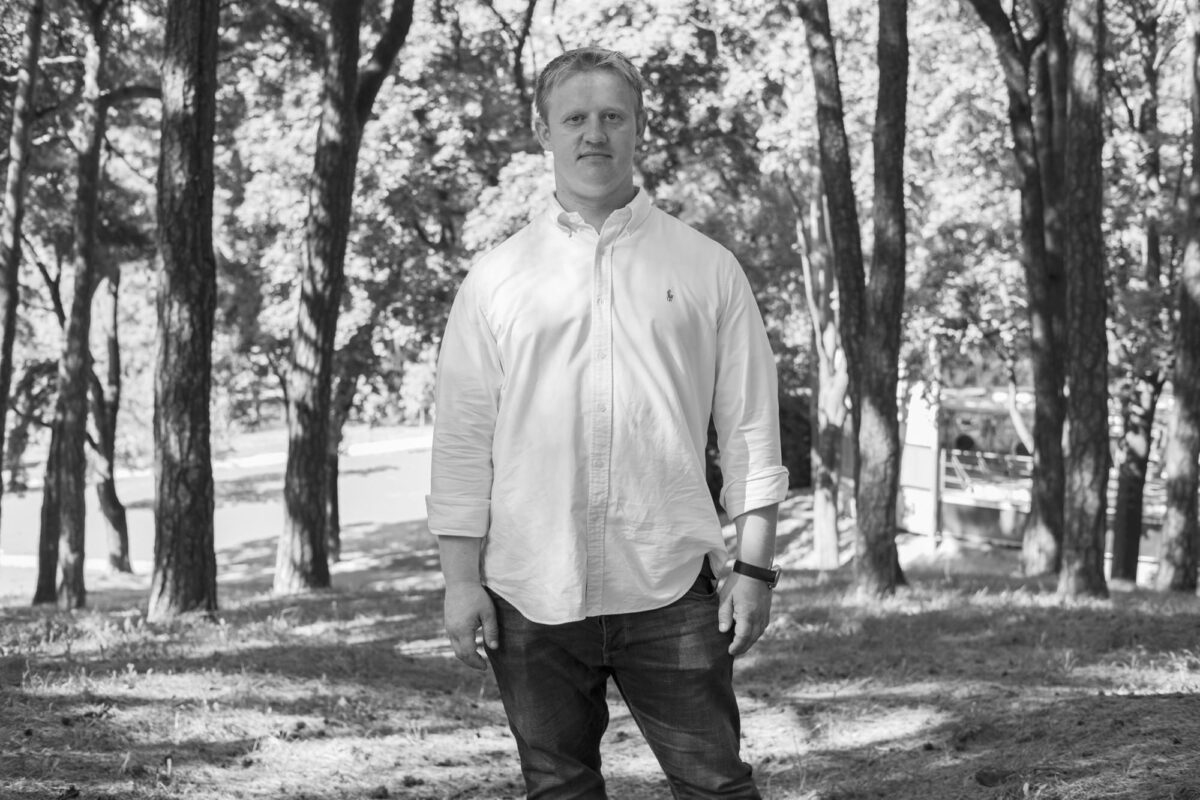
Stanislav Ivashkevich disappeared on August 9, 2020. He was covering events at one of the polling stations in Minsk. After the building closed, riot police drove up. Stanislav, along with four other people, was randomly snatched from the crowd by the police and taken to a paddy wagon. There was no contact with the journalist for two days. It turned out that he had been taken to the pre-trial detention center on Okrestina Street.
On August 9, after the closing of the polling station where I had covered what was happening and taken notes, a paddy wagon drew up. The riot police had been summoned by the electoral commission staff after a demand from people to allow observers in to count the votes. Riot police officers grabbed five random people from the crowd, including me. I said straight away that I was a journalist, but nobody cared. We were escorted to the bus, had our arms tied and our belongings taken away.
Those detained with me were completely different people: an employee of the House of Culture; an engineer who came to Belarus from the United Arab Emirates to vote; two IT specialists; and a construction worker.
We spent four hours in the bus, bored, talking. We were not beaten, but we seemed to be the only people in Minsk to have been detained, because later, when they drove us past our polling station, we saw several hundred people protesting and shouting. I would call the atmosphere festive, even.
It was not until we drove through the center of Minsk and saw riot police and soldiers with shields that we realized that the area had been largely cordoned off.

Stanislav Ivashkevich
We were taken to the Okrestino detention centre. We saw a man there lying on the ground bleeding with two doctors next to him.
Another person was also lying there and trying to get up, but he could not. They didn’t even try to help him, only hit him once with a stick, and started beating others. It was not until we arrived at Okrestino that we realized we were not the only ones detained in the city that evening.
We spent two days in a cell designed for three people. At first, there were 13 of us, but then two guys were hospitalized: one had had his legs lacerated by a grenade, and the other was simply beaten too severely.
We were lucky enough to get detained very early and avoid being beaten by the riot police. They didn’t beat us that much. Only once were we taken out into the yard and beaten with sticks, which is nothing compared to the stories other people tell.
We were given a loaf of bread just once in two days. There were 11 of us, we had not eaten for two days by then, but no one took the last piece of that loaf.
There were three beds, where we slept head-to-toe, plus a bench and a wooden table, which made a total of eight sleeping places. Having slept a little, you got up and said, «Well, whose turn is next?»
There was one Azerbaijani in the cell who respected the president very much. We asked him after the beating in the courtyard, «Well, have you changed your mind?» He nodded his head moodily.
We shared our stories. The guys said that they had been walking peacefully when the riot police blocked their way to grab them and drag them into the paddy wagon. The people around had become very angry, started throwing stones at the vehicle, and blocked it with cars. The riot police officers inside became very scared, jumped out with their pump-action shotguns, and started shooting people point-blank. One man received two penetrating wounds to the chest, according to the doctors who had been resuscitating him. They had demanded hospitalization for the guy, however he had been taken to Okrestina instead. One of the guys in our cell had a pant leg coloured maroon by that man’s dried blood. The guys had been brutally beaten in the paddy wagon, but they were lucky enough to get into our cell, where they were no longer treated so badly.
There was a cell opposite ours designed for six people, which however contained over 40. They were literally suffocating in there. Voices of panic could be occasionally heard – the people did not have enough oxygen.
The guys in our cell had been taken on August 9, so all the information we had came from the guards. The picture looked very contradictory: we felt like the scales would turn soon, but it was not clear on which side. The officers would come and say something like, «That’s it, Tikhanovskaya [an opposition leader] has been captured, she spewed her guts out, har-dee-har.»
There were those who secretly told us what was actually going on: the protests continued, there were more victims, barricades. The people had not surrendered. In general, our mood was high.

Stanislav Ivashkevich
On August 11, we were all taken to court. The judge refused to watch the video from the phone that clearly showed I had been working there as a journalist and had been detained at the polling station near the Riga supermarket, rather than at the opposite end of the city, as stated in the protocol. (By the way, we never actually saw any protocols.)
The judge claimed that I had been walking and shouting slogans, participating in the riots. When asked to call witnesses, the judge said that the witnesses were too busy…
However, despite her criminal behaviour, the judge decided to show a little humanity – perhaps in connection to the fact that I have a young child, as far as I can guess. I was not sentenced to further detention, and they let me go.
When they were escorting me out, a guard came up to me and whispered, «Tell me, between you and me, is it true that you have been paid 70 rubles each [to protest]?»
They took me out in a police bus. I was told to kneel on the floor and lower my head below the level of the window – so that the volunteers, who were gathered near the detention center, would not see us, I guess. They took me a couple of kilometers away from the center and dropped me off in some yard. I met a person who recognized me from the Belsat broadcasts who gave me a ruble for the metro ride. That is how I got home.
Terms and conditions
Partial or full reprint is permitted subject to following terms of use.
An active direct hyperlink to the original publication is required. The link must be placed in the header of the reprinted material, in the lead or the first paragraph.
Reprints, whether in full or in part, must not make changes to the text, titles, or copyrighted photographs.
When reprinting materials from this page, attribution must be given to the Press Club Belarus “Press under Pressure” project, collecting evidence of repression against independent media and journalists in Belarus.